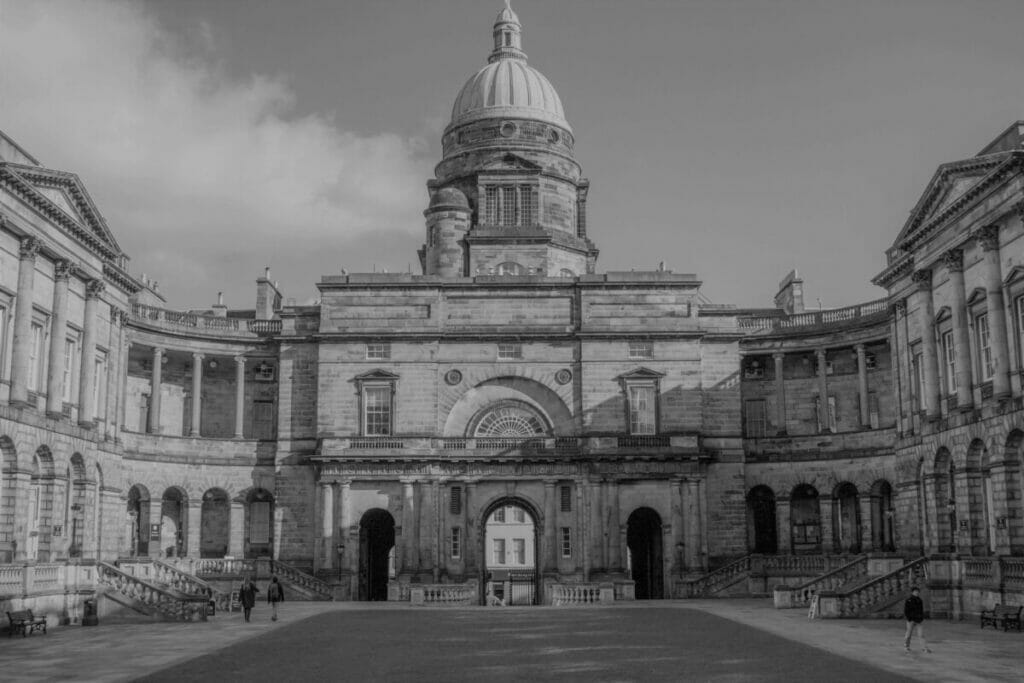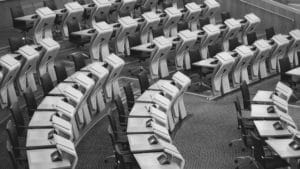In May, the Scottish Election Study launched its latest book, The Referendum that Changed a Nation: Scottish Voting Behaviour 2014-2019. The book examines the motivations driving voting behaviour among the Scottish Electorate in light of the Independence Referendum in 2014, Brexit and the COVID pandemic. Presenting the research findings which helped inform the book at the launch were Professor Ailsa Henderson, Professor Christopher Carman, Professor Robert Johns and Dr Fraser McMillan. The launch covered a range of different topics within the book – examining the Scottish independence referendum in 2014, the realignment of Scottish and Westminster voting intentions, support for independence and the SNP, and the change in engagement of ordinary people with politics. In this blog, Manon Jones recaps some of those key points.
2014 – Scottish Independence Referendum
Opening the book launch, Christopher Carman gave an overview of what happened in 2014 based on data from 77 polls starting from October 2013. He presented voting intentions between then and the referendum date on 18 September 2014, highlighting key events in between, such as the passing of the Scottish Independence Referendum Act 2013, the publication of Scotland’s Future, the beginning of the campaign donation period and the first debate between Alex Salmond and Alistair Darling.
Examining statements put forward by both campaigns, he explained yes-voters had bought into the arguments presented by the yes campaign significantly more than no-voters agreed with statements put forward by the no campaign. This suggested no-voters weren’t completely closed off to some of the arguments in favour of independence and they were more likely to find the arguments of yes campaign somewhat convincing. In contrast, yes-voters did not find the arguments against independence as persuasive, with three-quarters of yes-voters finding the argument that “Scotland would keep getting governments it wouldn’t vote for without independence” extremely convincing.
He discussed different socio-demographic factors which could affect whether someone voted yes or no in the independence referendum, which included national identity, income, age, popularity of leaders and media consumption. Interestingly, income or wealth did not have a significant impact on voting intentions. Age was a significant predictor as older people were more likely to vote no. However, the voting intentions of young people stayed the same as they grew up.
Realignment
Ailsa Henderson spoke about slow and rapid realignment, where people detach from their former party and begin to support a new one. She explained realignment following the independence referendum had transformed the Scottish electorate and argued it should be viewed within the context of a wider realignment in which the electorate was paying more attention to what was happening in Scotland. The first evidence of rapid realignment was the immediate effect the referendum had on Scottish voting intentions, with the gap between SNP and Labour voters widening, and Labour remaining on a downwards trend. She described chaotic movements of support for parties between 2010 and 2015, with the SNP picking up support from no-voters. At the same time, yes-voters were more consistent in their support for the SNP.
Interestingly, by 2019 one in 24 members of the Scottish Electorate was a member of a political party, compared to just one in 77 in 2012. (In UK as a whole, 1 in 125 people were members of a party in 2013). She excitedly announced the referendum had transformed the Scottish electorate to the extent of political participation. She made the case that the electorate had changed because no voters had completely changed their minds on the impact of the referendum.
Scottish National Party
Robert Johns talked about what had been happening recently in Scottish politics, focusing on the SNP’s finance scandal. He considered the question of whether the scandal would affect support for independence noting the book expanded on the lack of evidence of a relationship between support for the SNP impacting support for independence. While independence has a heavy influence on the SNP, the SNP does not appear to have as much influence on the independence movement.
Support for independence had ignored the ups and downs of the political world, such as the pandemic and scandals in Westminster and Holyrood. Part of the reason for this, he said, was because people still felt strongly connected with the decision and arguments they had made in 2014. Furthermore, more than half of yes-voters strongly supported the SNP and although other party identities were not as strongly associated with yes or no voters, the Conservatives were the second strongest as they represented the no-vote.
While the scandal had resulted in a slight reduction in support, this had not been catastrophic. Interestingly, he highlighted that the Gender Recognition Reform (Scotland) Bill had not had an impact on support for the SNP. He argued not much would have impacted support for the SNP because of support for independence, and not much would affect it in the future as long as the question of independence remained unresolved.
Scottish Opinion Monitor
Dr Fraser McMillan brought the talk to a close by introducing the Scottish Opinion Monitor (“Scoop”) discussing its work since 2021 and how data was collected by the Scottish Election Study. The Scottish Opinion Monitor is a tool to understand Scottish public opinion. He highlighted Scoop was a series of 1200 cross sectional polls, primarily using YouGov to survey participants.
Manon Jones is an Account Manager on the justice portfolio.



